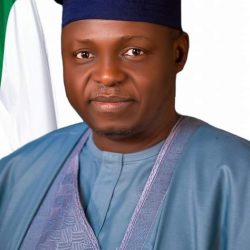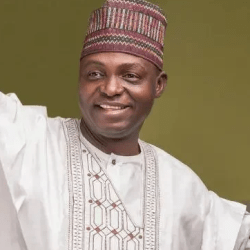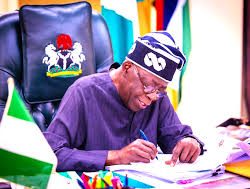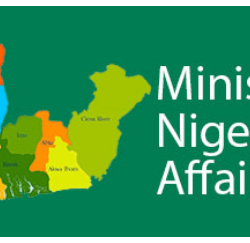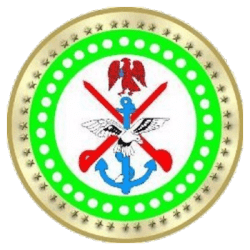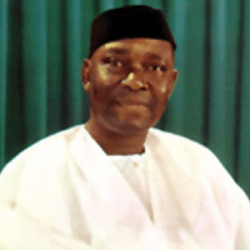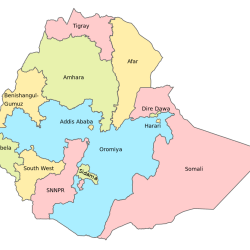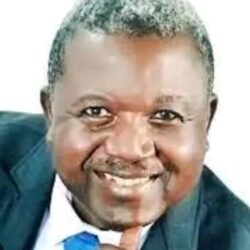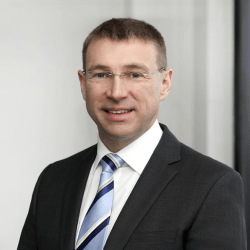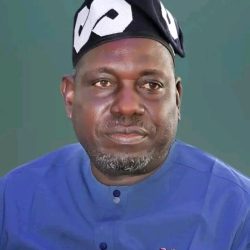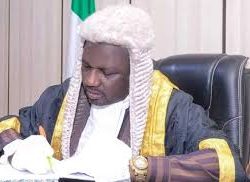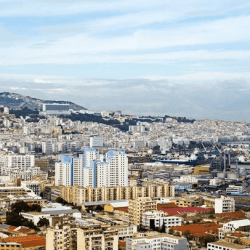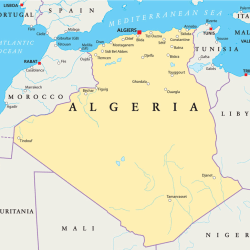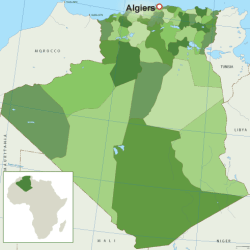Ahmed Attaf is the Minister of Foreign Affairs in Algeria.

Ahmed Attaf
Minister of Foreign Affairs and the National Community Abroad
Algeria president, prime minister, secretary and ministers
Abdelmadjid Tebboune is in power in Algeria. Tebboune was elected President of the People’s Democratic Republic of Algeria in the presidential elections of December 12, 2019, with a vote of 58.13%.

Other top members of Algeria government

Nazir Al-Arabawy
Prime Minister

Yahya Bukhari
Secretary General of the Government
- Ahmed Attaf
Minister of Foreign Affairs and the National Community Abroad - Ibrahim Murad
Minister of the Interior, Local Communities and Urban Development - Abdul Rashid Medical
Minister of Justice, Keeper of the Seals - Dear Fayed
Minister of Finance - Muhammad Arkab
Minister of Energy and Mines - Eid Rabeqa
Minister of Mujahideen and People of Rights - Youssef Belmehdi
Minister of Religious Affairs and Endowments - Abdel Hakim Belabed
Minister of National Education - Kamal Badari
Minister of Higher Education and Scientific Research - Yassin Marabi
Minister of Vocational Training and Education - Formal Mology
Minister of Culture and Arts - Abdul Rahman Hammad
Minister of Youth and Sports - كريم بيبي تريكي
Minister of Posts and Telecommunications - Kawthar Kreiko
Minister of National Solidarity, Family and Women’s Issues - Ali Aoun
Minister of Industry and Pharmaceutical Production - Youssef Sharfa
Minister of Agriculture and Rural Development - Muhammad Tariq Belaribi
Minister of Housing, Urbanism and the City - Tayeb Zitouni
Minister of Trade and Export Promotion - Muhammad Laqab
Minister of Communication - Lakhdar Rakhrukh
Minister of Public Works and Basic Installations - Taha Darbal
Minister of Irrigation - Muhammad Habib Zahana
Minister of Transport - Mukhtar Didouch
Minister of Tourism and Traditional Industry - Abdul Haq Sayhi
Minister of Health - Faisal bin Talib
Minister of Labour, Employment and Social Security - Basma Azwar
Minister of Relations with Parliament - Fazia Dahlab
Minister of Environment and Renewable Energy - Ahmed Badani
Minister of Fisheries and Fisheries Products - Yassin Al Mahdi Walid
Minister of Knowledge Economy, Emerging Enterprises and Micro-Enterprises
Algeria
Algeria is country in North Africa. It is the largest country on the continent and the tenth-largest in the world by area, covering more than 2.3 million square kilometers.
Capital: Algiers (El Djazaïr)
Official languages: Arabic, Tamazight
Government: Semi-presidential system
Currency: Algerian Dinar
Area: 2,382,000 sq km
Total Population (2017): 41.1 Million
Urban Population (2017): 73.50%
Female Population (2017): 49.70%






It has a coastline of about 1,200 kilometers along the Mediterranean Sea, and shares borders with Tunisia, Libya, Niger, Mali, Mauritania, Morocco, and Western Sahara.



It has a Mediterranean coastline of over 1200 km and a contrasting relief made up of plains, high plateaus, mountain ranges and a desert expanse of 2 million km² which is rich in natural and historical elements that represent the preserved memory of the southern Algerian region.
Algeria has:
- 1557 hotel establishments with a capacity of 143811 beds, including about 20000 beds, are in the public sector (HTT Group), which are currently being rehabilitated and modernised,
- 609 beaches listed, of which 427 are authorised for swimming,
- 10 national parks including Tassili National Park (100,000 ha) and Ahaggar National Park (Hoggar 000 ha), wetlands, 51 of which are classified by the Ramsar Convention, as well as a rich thermal potential.
- 7 Algerian monuments and sites are listed as World Heritage Sites: Tassili n’Ajjer, in the wilayas of Tamanrasset and Illizi, Djamila in the wilaya of Setif, the M’Zab valley in the wilaya of Ghardaïa, the Kasbah of Algiers, the Kalaa of Beni Hamad in the wilaya of M’sila, Timgad in the wilaya of Batna, Gourraya in the wilaya of Tipaza.

- 36 airports, including 16 international airports.
- 80 dams and 20 seawater treatment plants, in addition to 15 large power plants.
- A road network of nearly 127,000 kms.
- Railway tracks reaching 6300 km, in addition to the metro and tramway network at the level of 07 wilayas.
- A telecommunications network covering most of the country.
Algeria gained its independence in 1962 after a war of liberation that lasted eight years.
The country has a rich and diverse history, culture, and geography, with influences from various civilizations such as Berbers, Phoenicians, Romans, Arabs, Turks, and French.


The country was part of the Ottoman Empire until the early 19th century, when it was colonized by France.
Algeria is a member of the African Union, the Arab League, OPEC, and the United Nations, and has diplomatic relations with many countries around the world. It plays an important role in regional and international affairs, especially in Africa and the Middle East. Algeria is also a founding member of the Arab Maghreb Union, a regional organization that aims to promote cooperation and integration among its members.
The country has a population of about 44 million people, most of whom are Arab-Berbers or Amazighs, who speak Arabic and Tamazight as official languages. Algeria is a multiethnic and multicultural society, with other ethnic groups such as Tuaregs, Sahrawis, Mozabites, Chaouis, and Kabyles. Algeria also has a religious diversity, with Islam being the state religion and the majority faith, but also having minorities of Christians, Jews, and other beliefs.
It has a mixed economy, with a large public sector and a growing private sector. The main sectors are hydrocarbons, agriculture, industry, services, and tourism. Hydrocarbons account for about 60% of the government revenues and 30% of the GDP. It is one of the largest producers and exporters of natural gas and oil in the world. Agriculture employs about 14% of the workforce and contributes to 12% of the GDP. The main crops are wheat, barley, potatoes, dates, olives, citrus fruits, grapes, and almonds. Industry accounts for 37% of the GDP and includes sectors such as petrochemicals, metallurgy, textiles, food processing, electronics, and construction. Services make up 51% of the GDP and include sectors such as banking, telecommunications, transportation, education, health care, and retail. Tourism is a potential source of income and employment for Algeria, with its natural and cultural attractions such as the Sahara desert, the Atlas mountains, the Roman ruins of Timgad and Djemila, the Casbah of Algiers, and the M’Zab Valley.
Algeria faces many challenges and opportunities in the 21st century, such as political and social reforms, economic diversification, environmental protection,regional stability and international cooperation. It has experienced political unrest and social protests in recent years, demanding more democracy, accountability and transparency from the government.
It seeks to diversify its economy and reduce its dependence on hydrocarbons which are vulnerable to price fluctuations and depletion. The country has moves deal with environmental issues such as desertification, water scarcity, pollution, and climate change which threaten its natural resources and human well-being. Also it seeks to maintain its security and stability in a volatile region, facing threats from terrorism, extremism and armed conflicts in neighboring countries. Algeria is determined to enhance its cooperation and integration with other countries and regional organizations to foster trade, investment, development and peace.
Reference: aapi.dz/
